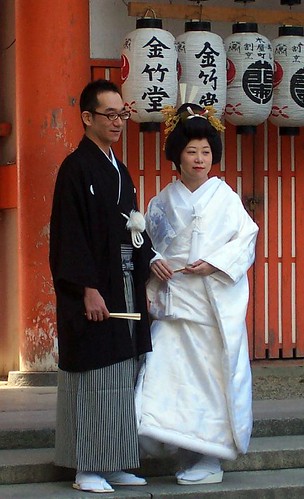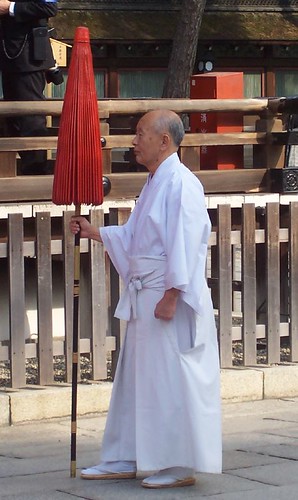On video lecture resources
Spurred on by An American Physics Student in England (who writes much more eloquently on the subject than I will) and Asymptotia's follow up I've been spending a couple of hours each evening back at the guest house winding down with videos of theory seminars from various graduate summer programs - With a Chinese budget, going out on the town is not on the cards, though I've spent a few pleasant evenings in local cafes. Anyway, I thought I'd talk about these video lectures in general and try and add to the original voice and push to make this more widespread.
Learning theoretical physics is hard - it takes time and effort in equally large helpings. There's so much of it that it's easy to be distracted by a million questions and one could spend years following leads from one confusing point to another. It's clearly very complicated though with practice and time the confusion clears and the mass of formulae converge into a meaningful whole. Sometimes books and people explain things in such different ways that it's hard to see that they're talking about the same thing. Often this can be beneficial however because you build a more structured picture of the given subject - physics for cubists perhaps.
Before I say anything about sitting back and watching videos I should stress that the only way you will learn to use the tools of quantum field theory, string theory, advanced areas of mathematics and the like or indeed far simpler topics in maths and physics is not just to read the hundreds of books on the subjects but to do it.
Many people claim that they don't give advice. This is all very humble but those with experience have been through the system and seen what pitfalls lie in wait. I am keen to hear advice from anyone who has been there and done it, however subjective it may be.
Though I'm not that far from being a graduate myself I think that my memories are fresh enough to provide my tuppence worth on the subject.
I think that the following is one of the most important points to stress to first year graduate students: Now is perhaps the only time that you will have the luxury to be able to sit down and go through all the problems in a book. Do it! Do every problem you can get your hands on. Don't just look at the problems and think if you can do them (though of course thinking about problems abstractly is a useful skill) but write out the indices, dot your alphas and make sure your factors of two are right. This will be obvious to most I'm sure but it's so easy to fall into lazy habits of simply reading books in a comfy chair with a cup of coffee. My opinion is that daydreaming is also an integral part of consolidating understanding in these subjects but in general it won't solve the nitty gritty of calculations.
In my first year I tried to take this approach of going through problems but probably not in a very organised way. I had pieces of paper flying all over the place and ideally I should have ended up with neat notebooks full of the correct solutions which I could easily look back on if I need to do a similar problem in the future.
After this, when you start doing research you (or at least I) won't have time to devote to spending several months going through a book. Currently I do spend a lot of time reading papers and books on various subjects but this is often piecemeal and is on top of pursuing research problems. I usually have to devote evenings and weekends to the former and it's frequently interrupted by the latter.
So, do it, speak to people who've been there and find out what books they found useful and go from beginning to end. If it's an appropriate book you will learn how to solve real research problems for yourself. If you don't do the problems and work through the examples then you will probably be able to sit through a seminar on the subject and know what's going on but you wouldn't have been able to get there yourself.
OK, that said lectures are vital because they give the interaction between student and expert. It means you can follow the thought patterns of someone in the trade and you can ask the questions you can't pose to a book, this is pretty obvious. On top of this if the lecturer is good they will take you at an appropriate pace through a subject. As all good books on learning techniques will stress, stimulating different areas of the brain during learning is a good way to memorize things and so using both the auditory as well as visual inputs will surely be beneficial. I wonder if because our brains have evolved since the advent of language if we're better at learning through speech than through the relatively recent addition of the written word.
Still useful but without the benefit of interaction is to watch the lectures on video which is what I've been doing for a couple of hours each evening. I probably haven't learnt how to solve any of my research problems from them but they've taught me new ways to see things and given me motivation to go and look stuff up in books. Institutes are slowly but surely videoing lectures and making them available to the public. I would urge all institutes to do this. It's a waste not to. There are some wonderful lecturers out there and for something that costs so little, so many people could benefit. This is a treasure trove of resources waiting to be utilised.
As an addition I would hope that at some time there can be a real central repository rather than hundreds of sites dotted round the place with small catalogues of lectures. Spires has a search function for videos but they're not all there. Perhaps it would be possible to include a comment or voting section. I'm sure there are hundreds of courses around the world on QFT but if through time people gravitate towards a particular set of lecturers that's even better for newcomers who don't want to search through all the others.
The lectures I've been watching have mostly been of a relatively basic level but I've learnt things from each one and spent a long time following up leads on the web and in the Yukawa Institute library. If nothing else it's a great chance to sit back at leisure and contrast what makes a good and bad lecturer (though almost all of them have been great) and get a few tips.
Most of the lectures from the ASTI summer school are excellent, ranging from true pop-science level to some reasonably technical first year graduate material. Don't be put off by the fact that occasionally the audio and visual get out of synch, this simply adds to the different ways your brain is having to function and makes the learning experience richer ;-). Lectures from Tony Zee on beginner's QFT, Clifford Johnson on strings and branes, Jeff Murugan on solitons (great but the synch is testing), James Gates on supersymmetry, Don Marolf on black holes and Robert de Mello Koch on the fundamentals of group theory are particularly recommended, though there are many that I still haven't seen. (See below for some hints on downloading these).
The lectures from the PITP school aren't quite so clear but there's still a great range of courses (mostly four lectures each) from the basics of string theory by Richard Szabo and the AdS/CFT correspondence by Mark Van Raamsdonk to slightly more technical lectures by Leonard Susskind on de Sitter space (really not very clear visuals at all).
From the Perimeter institute is another fantastic resource though unfortunately I've not found a way to download them (only viewable as far as I can tell in Internet Explorer). The summer school on strings, gravity and cosmology has extensive introductory lectures.
Serkan Cabi has a long list of pages with videos online and I've spent a long time searching through for the most appropriate. Many of them are streaming but if you want to download them there are programs out there that allow you to do this. In particular I've been using a program called Hidownload which is free for something like two months. For the ASTI lectures the link seemed to break easily and I found a program called DAP which allows resumption of downloads meant that I could go away and over a long time the lectures would end up in one piece on my computer.
Anyway, I hope that's of use. In particular if anyone has the knowhow, energy or power to get a real central repository or search engine which enables comments I think it would be very beneficial. Bottom line - don't waste lectures. Make them as freely available as possible.










